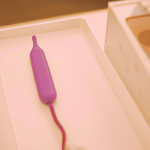“Masturbation: The Safe and Natural Way to Keep Your Sperm Count High!”
Introduction
Masturbation is a common sexual activity that many people engage in. It is often seen as a taboo topic, but it is important to understand the potential effects it can have on sperm production and fertility. This article will explore the potential effects of masturbation on sperm production and fertility, as well as provide tips for maintaining healthy sperm production.
The Science Behind Masturbation and Its Effects on Sperm Count
Masturbation is a natural and healthy sexual activity that has been practiced since ancient times. It is a common behavior among both men and women, and it can provide a variety of physical and psychological benefits. However, there is some debate about the effects of masturbation on sperm count. In this article, we will explore the science behind masturbation and its potential effects on sperm count.
The first thing to understand is that sperm production is a complex process that is regulated by hormones. The primary hormones involved in sperm production are testosterone, follicle-stimulating hormone (FSH), and luteinizing hormone (LH). Testosterone is the primary hormone responsible for sperm production, and it is produced in the testes. FSH and LH are produced in the pituitary gland and are responsible for stimulating the production of testosterone.
When a man masturbates, the hormones involved in sperm production are released. This can lead to an increase in sperm production, which can result in a higher sperm count. However, it is important to note that this increase is usually temporary and will not last for more than a few days.
In addition to the hormones involved in sperm production, masturbation can also affect the quality of sperm. Studies have shown that men who masturbate frequently have higher levels of sperm motility and morphology, which are important factors in determining fertility.
It is important to note that masturbation does not necessarily lead to a decrease in sperm count. In fact, some studies have found that men who masturbate frequently have higher sperm counts than those who do not. This suggests that masturbation may actually be beneficial for sperm production.
Overall, the science behind masturbation and its effects on sperm count is still unclear. While some studies suggest that it may be beneficial for sperm production, more research is needed to determine its exact effects. In the meantime, it is important to remember that masturbation is a natural and healthy sexual activity that can provide a variety of physical and psychological benefits.
Is Masturbation a Sperm Killer? A Look at the Evidence
Masturbation is a common sexual activity that many people engage in. While it is generally considered to be a safe and healthy practice, there is some debate about whether or not it can have an effect on sperm production. In this article, we will take a look at the evidence to determine if masturbation is a sperm killer.
First, it is important to understand the basics of sperm production. Sperm are produced in the testicles and stored in the epididymis, a tube located behind the testicles. During ejaculation, sperm are released from the epididymis and travel through the urethra to the penis.
The amount of sperm produced is determined by a number of factors, including hormones, age, and lifestyle. It is believed that frequent ejaculation can reduce the amount of sperm produced, as the body needs time to replenish its supply.
So, does masturbation reduce sperm production? The answer is not clear. Some studies have suggested that frequent masturbation can reduce sperm count, while others have found no effect.
One study found that men who masturbated more than five times per week had lower sperm counts than those who masturbated less often. However, this study did not take into account other factors that could have affected sperm production, such as diet, exercise, and stress.
Another study found that men who masturbated more than five times per week had lower sperm motility, which is the ability of sperm to move through the female reproductive tract. Again, this study did not take into account other factors that could have affected sperm motility.
Overall, the evidence is inconclusive. While some studies suggest that frequent masturbation can reduce sperm production, other studies have found no effect. It is important to note that lifestyle factors, such as diet, exercise, and stress, can also affect sperm production.
In conclusion, there is no clear evidence that masturbation is a sperm killer. While some studies suggest that frequent masturbation can reduce sperm production, other studies have found no effect. It is important to consider other lifestyle factors that could affect sperm production when evaluating the evidence.
How to Balance Masturbation and Fertility: Tips for Men
Masturbation is a normal and healthy part of life for many men. However, if you are trying to conceive, it is important to understand how masturbation can affect your fertility. Here are some tips to help you balance masturbation and fertility:
1. Monitor your ejaculation frequency. If you are trying to conceive, it is important to limit your ejaculation frequency. This means avoiding masturbation and sexual intercourse more than once or twice a week. This will help ensure that your sperm count is high enough to increase your chances of conception.
2. Avoid using lubricants. Lubricants can reduce sperm motility and make it more difficult for sperm to reach the egg. If you are trying to conceive, it is best to avoid using lubricants during masturbation or sexual intercourse.
3. Take breaks from masturbation. Taking breaks from masturbation can help your body produce more sperm. This can increase your chances of conception.
4. Eat a healthy diet. Eating a healthy diet can help improve your fertility. Eating foods that are rich in zinc, selenium, and vitamin C can help improve sperm quality and motility.
5. Exercise regularly. Exercise can help improve your fertility by increasing blood flow to the reproductive organs. This can help improve sperm quality and motility.
6. Reduce stress. Stress can have a negative effect on fertility. Taking steps to reduce stress, such as getting enough sleep, exercising, and practicing relaxation techniques, can help improve your fertility.
By following these tips, you can help balance masturbation and fertility. Remember, it is important to talk to your doctor if you have any questions or concerns about your fertility.
The Pros and Cons of Masturbation for Men Trying to Conceive
Masturbation is a common sexual activity that many men engage in, and it can have both positive and negative effects on fertility. For men trying to conceive, it is important to understand the pros and cons of masturbation in order to make an informed decision about whether or not to engage in the activity.
Pros
Masturbation can be beneficial for men trying to conceive in several ways. First, it can help to reduce stress, which can be a major factor in fertility. Stress can interfere with the body’s ability to produce healthy sperm, so reducing stress through masturbation can help to improve fertility. Additionally, masturbation can help to increase sperm count and motility, which can improve the chances of conception. Finally, masturbation can help to increase libido, which can be beneficial for couples trying to conceive.
Cons
While there are some potential benefits to masturbation for men trying to conceive, there are also some potential drawbacks. First, excessive masturbation can lead to a decrease in sperm count and motility, which can reduce the chances of conception. Additionally, some men may find that masturbation interferes with their relationship with their partner, which can be detrimental to fertility. Finally, some men may find that masturbation leads to feelings of guilt or shame, which can also interfere with fertility.
In conclusion, masturbation can be beneficial for men trying to conceive in some ways, but it can also have some potential drawbacks. It is important for men to understand the pros and cons of masturbation in order to make an informed decision about whether or not to engage in the activity.
How to Increase Sperm Count After Masturbation
Masturbation is a normal and healthy part of life, but it can have an effect on sperm count. If you are looking to increase your sperm count after masturbation, there are a few steps you can take.
First, it is important to understand that sperm production takes time. It takes about 64 days for sperm to mature, so it is important to give your body time to replenish its sperm supply.
Second, it is important to make sure you are getting enough rest. Getting enough sleep helps to keep your body healthy and can help to increase sperm production.
Third, it is important to make sure you are eating a healthy diet. Eating a balanced diet that is rich in vitamins and minerals can help to increase sperm production. Eating foods that are high in zinc, such as oysters, can also help to increase sperm count.
Fourth, it is important to reduce stress. Stress can have a negative effect on sperm production, so it is important to find ways to reduce stress in your life. Exercise, meditation, and yoga can all help to reduce stress and improve sperm production.
Finally, it is important to avoid certain substances. Smoking, alcohol, and drugs can all have a negative effect on sperm production, so it is important to avoid these substances.
By following these steps, you can help to increase your sperm count after masturbation. It is important to remember that it takes time for sperm to mature, so it is important to be patient and give your body time to replenish its sperm supply.
The Link Between Masturbation and Low Sperm Count: What You Need to Know
Masturbation is a normal and healthy part of human sexuality. However, there is a link between excessive masturbation and low sperm count. This article will discuss the potential risks associated with excessive masturbation and provide information on how to maintain a healthy sperm count.
The primary risk associated with excessive masturbation is a decrease in sperm count. This is because the body needs time to replenish its sperm supply after ejaculation. If a man masturbates too frequently, the body may not have enough time to produce enough sperm to maintain a healthy sperm count.
In addition to a decrease in sperm count, excessive masturbation can also lead to other physical and psychological issues. For example, it can lead to feelings of guilt and shame, as well as physical discomfort. It can also lead to erectile dysfunction, which can further reduce a man’s fertility.
Fortunately, there are ways to maintain a healthy sperm count and reduce the risks associated with excessive masturbation. The first step is to practice moderation. Masturbation should be done in moderation, and it should not be done more than once or twice a week. Additionally, it is important to practice safe sex, as this can help reduce the risk of sexually transmitted infections, which can also reduce sperm count.
Finally, it is important to get regular check-ups with a doctor. A doctor can help monitor sperm count and provide advice on how to maintain a healthy sperm count. Additionally, a doctor can provide information on lifestyle changes that can help reduce the risks associated with excessive masturbation.
In conclusion, there is a link between excessive masturbation and low sperm count. However, by practicing moderation and making lifestyle changes, it is possible to maintain a healthy sperm count and reduce the risks associated with excessive masturbation.
How to Overcome the Guilt of Masturbation When Trying to Conceive
When trying to conceive, it can be difficult to overcome the guilt associated with masturbation. This is because many people feel that masturbation is wrong or immoral, and that it can interfere with the process of conception. However, it is important to remember that masturbation is a normal and healthy activity, and it can actually be beneficial when trying to conceive.
First, it is important to understand that masturbation is not wrong or immoral. It is a natural and healthy activity that can help to reduce stress and improve overall wellbeing. In fact, it can even help to improve fertility by increasing blood flow to the reproductive organs and helping to regulate hormones. Therefore, it is important to recognize that masturbation is not something to feel guilty about.
Second, it is important to recognize that masturbation can actually be beneficial when trying to conceive. Masturbation can help to increase libido, which can make it easier to become aroused during intercourse. Additionally, it can help to increase the production of sperm, which can improve the chances of conception. Therefore, it is important to recognize that masturbation can actually be beneficial when trying to conceive.
Finally, it is important to remember that it is okay to take a break from trying to conceive. Trying to conceive can be stressful, and it is important to take time to relax and take care of yourself. Taking a break from trying to conceive can help to reduce stress and improve overall wellbeing, which can make it easier to conceive when the time is right.
Overall, it is important to remember that masturbation is a normal and healthy activity, and it can actually be beneficial when trying to conceive. Therefore, it is important to recognize that there is no need to feel guilty about masturbation when trying to conceive. Taking a break from trying to conceive can also be beneficial, as it can help to reduce stress and improve overall wellbeing.
Conclusion
In conclusion, masturbation is not a sperm killer. While it is true that frequent masturbation can reduce sperm count, it is not a permanent condition and can be reversed with abstinence. Additionally, there is no scientific evidence to suggest that masturbation causes any long-term damage to sperm production or fertility. Therefore, it is safe to say that masturbation is not a sperm killer.











